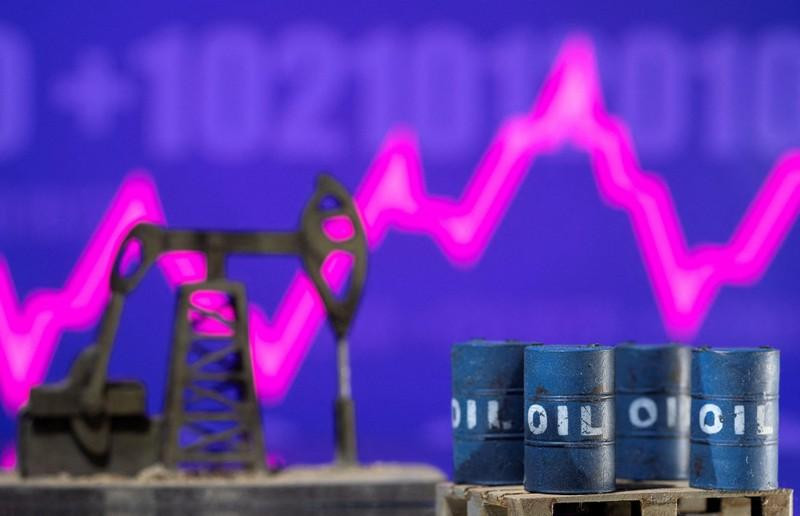The Organisation of the Petroleum Exporting Countries and its allies (OPEC+) have agreed to reduce oil production by 100,000 barrels per day by October.
The decision was considered quite surprising for the energy market because experts said that the world's leading oil producers would keep their output unchanged.
Crude prices are on course for a third consecutive monthly drop, the longest losing streak over the past two years. In March, the world oil prices approached the threshold of 140 USD per barrel, the highest level in 14 years.
However, recently, many factors have caused the price of black gold to decrease. Concerns about the risk of world economic recession are becoming more and more obvious.
China, the world's second-largest economy, has continued to impose blockade orders to prevent and control the COVID-19 pandemic. If successful, efforts to revive the nuclear deal with Iran will help Tehran restore oil exports. Another factor causing the price of commodities, including crude oil, to fall is the record of the USD.
Experts said that although the recent oil output cut was not large, the decision of OPEC+ conveyed a message that the exporters are ready to protect oil prices. The cuts from OPEC+ amounted to only 0.1% of global oil demand and the supply remained virtually unchanged, but the move still sent oil prices up 3% immediately.
Energy analysts at Commerzbank Research emphasised that it is clear that OPEC+ is not willing to accept any further slide and is likely to further cut production if it determines this is necessary.
Saudi Arabia, the largest oil exporter in OPEC+, has repeatedly raised the idea that the alliance may consider the reduction of production to lift oil prices. The Saudi Arabia energy minister also noted that OPEC + has enough tools to deal with challenges, including reducing production at any time.
At their meeting on September 5, OPEC + members also agreed that they can meet at any time to adjust output to suit the actual situation.
Despite efforts from OPEC+, the factors that drag oil prices down are still present. The White House affirmed that US President Joe Biden will take all steps necessary to shore up energy supplies and lower prices.
Energy supply should meet the demand to support economic growth and lower prices for American consumers and consumers around the world.
US President Joe Biden
On September 2, a group of Seven finance ministers (G7) agreed to impose a price cap on Russian oil. G7 aims to form a broad coalition to maximize the effectiveness of the measures while urging all countries intending to import Russian oil and petroleum products to commit to this level or lower. The initial price ceiling is based on technical criteria and will be regularly adjusted as needed.
Also at the OPEC+ meeting, a Russian energy official opposed the G7's plan to impose a price ceiling on Russian oil, saying that this would cause instability in the global market. The Kremlin said Russia would stop selling oil to countries that impose price caps on Russia's energy resources.
Iran's Oil Minister rejected the politicisation of the oil market, saying that Tehran was ready to help meet global energy demand.
The Russian side said people will directly suffer the consequences of the sanctions and was studying how a price ceiling on its oil exports might affect its economy.
















